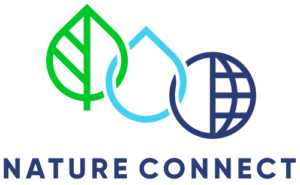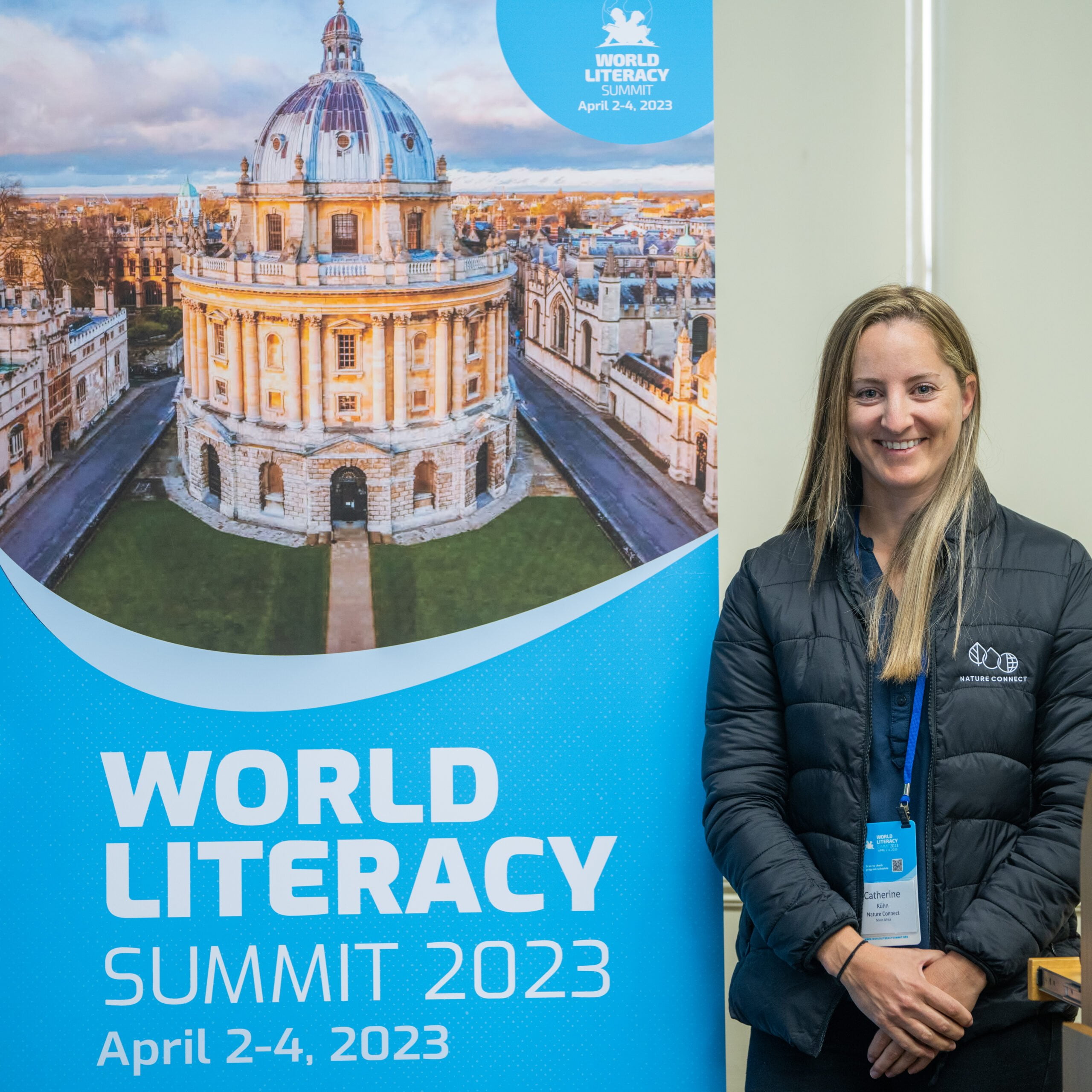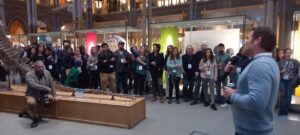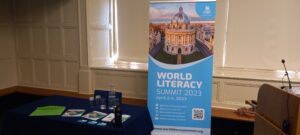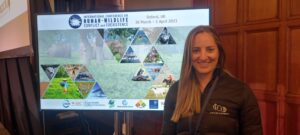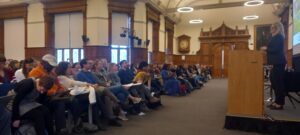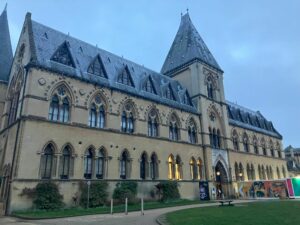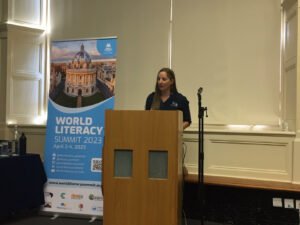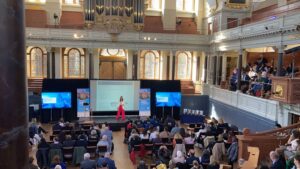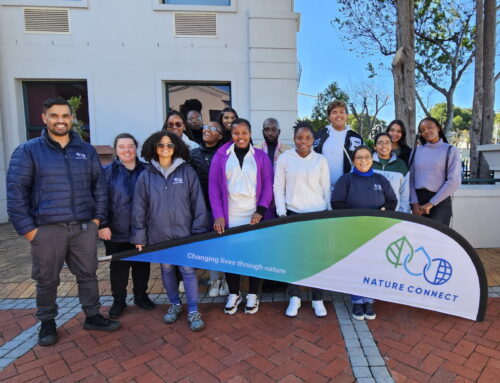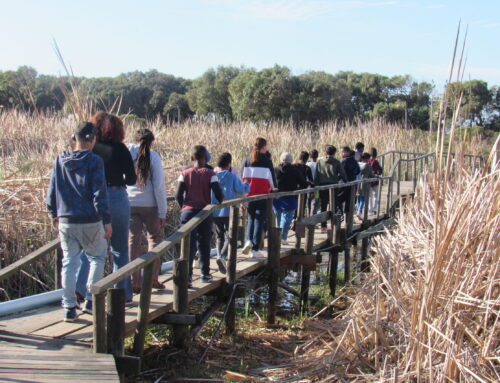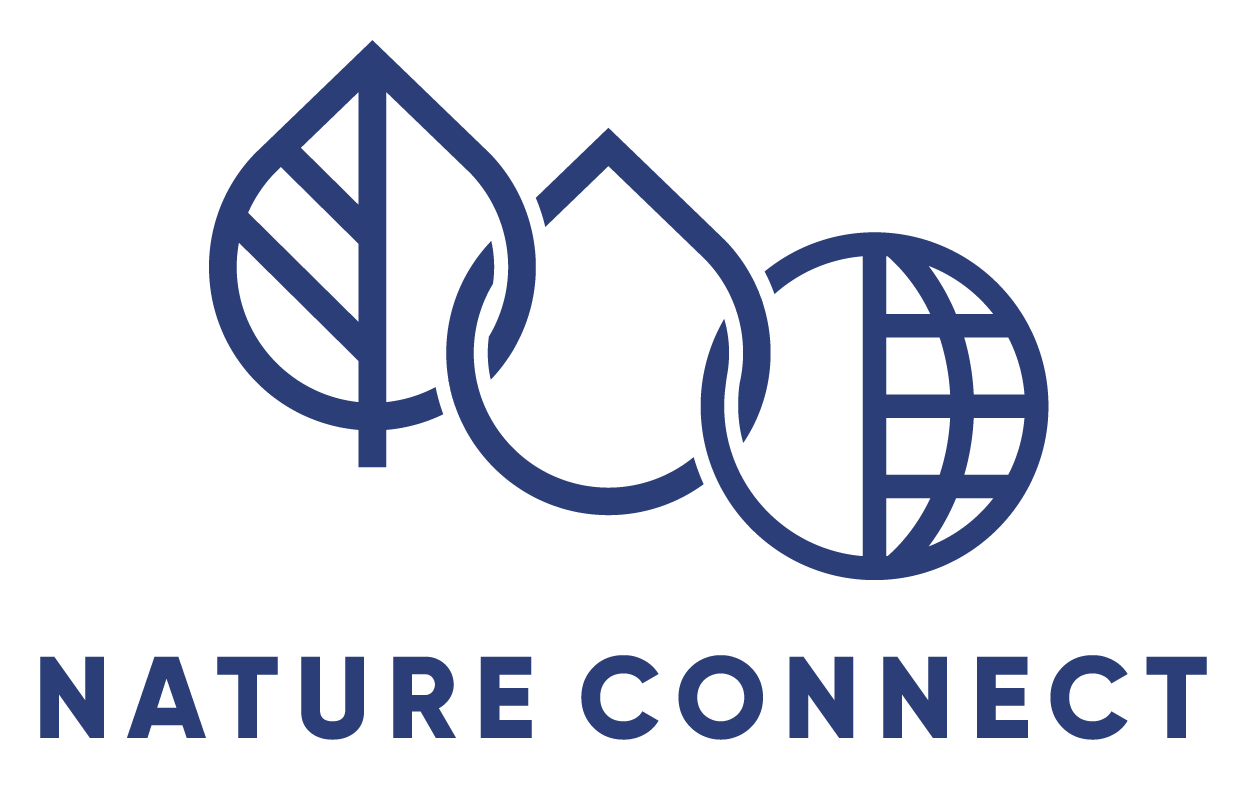We are thrilled to share that Catherine Kühn, our Sustainable Schools Education Programme Coordinator at Nature Connect, had the honour of attending two influential conferences in Oxford, UK, in April 2023. These conferences provided a valuable opportunity to engage with global experts and gain insights into pressing environmental issues.
IUCN SSC Human-Wildlife Conflict and Coexistence Conference (29 March – 01 April):
Catherine attended the groundbreaking IUCN SSC Human-Wildlife Conflict and Coexistence Conference, which brought together around 500 delegates from across the world. This inaugural event aimed to foster knowledge sharing, facilitate networking among like-minded individuals, and promote collaborative efforts. Catherine was impressed by the conference’s significance as it acknowledged Human-Wildlife Conflict as a globally recognised issue in a comprehensive biodiversity document for the first time.
During the opening speech, the conference organisers highlighted the release of the IUCN SSC guidelines on human-wildlife conflict and coexistence, which served as a valuable resource for addressing this critical issue. The discussions revolved around the United Nations Cop 15 Kunming-Montreal Target 4, emphasising the urgent need to manage human-induced extinction and preserve genetic diversity within and between species.
Catherine actively participated in numerous parallel sessions and keynote speeches throughout the conference. The diverse topics covered included stakeholder engagement, national policies for human-wildlife conflict, financial incentives, zoonotic diseases, practical insights for dealing with conflict, reptile conservation, and reimagining environmental education. One interactive session provided an opportunity for Catherine to share Nature Connect’s Western Leopard toad tunnels project and the organisation’s broader work. She also contributed to a session on rethinking environmental education, which drew significant interest from attendees.
Key takeaways from the conference included the importance of decolonizing environmental sciences, reconnecting people with nature and indigenous knowledge, and adapting environmental education to suit diverse contexts. It was emphasised that environmental awareness should encompass knowledge, attitude change, skill development, critical thinking, and fostering a deep understanding of issues.
World Literacy Summit (2 – 4 April 2023):
Catherine also attended the World Literacy Summit, which focuses on advocating, championing, and educating on the vital importance of improving literacy levels across the globe. She presented a talk at this conference entitled “Embracing post-Covid environmental education in a developing country: An online sustainable education model that aims to be inclusive and adaptive.” This talk highlighted the initiatives Nature Connect took during the Covid-19 pandemic to continue providing environmental education to schools in South Africa, thus contributing towards environmental literacy among youth.
One of the themes for the talks at the World Literacy Summit was “Post Pandemic Teaching – Its Impact on Learning and Education.” The period of Covid-19 meant added strain on South Africa’s schooling system. Nature Connect saw an opportunity to help with capacity shortages in schools while maintaining its focus on bringing environmental education to impoverished areas. Our Sustainable Schools Programme and its Online Platform were the result of an opportunity borne out of challenging Covid times.
This conference served as another invaluable opportunity for her to showcase the important work we do in promoting connectedness between people and nature and was a great platform to gain knowledge, network with like-minded people and organisations, and contribute to the broader discussion of environmental literacy.
We are immensely proud of Catherine for representing Nature Connect and actively engaging with global experts at these conferences. Her participation and contributions have further enriched our organisation’s commitment to sustainability and environmental education.
Stay tuned for Catherine’s upcoming article about her conference experience, which will be shared through the IUCN Commission on Education and Communication. We will provide you with the link as soon as it becomes available. In the meantime, we continue to explore partnerships and opportunities to make a positive impact in the field of human-wildlife conflict and environmental education.
Together, let’s strive for a more harmonious coexistence between humans and wildlife while promoting literacy and sustainable practices for a better future.
